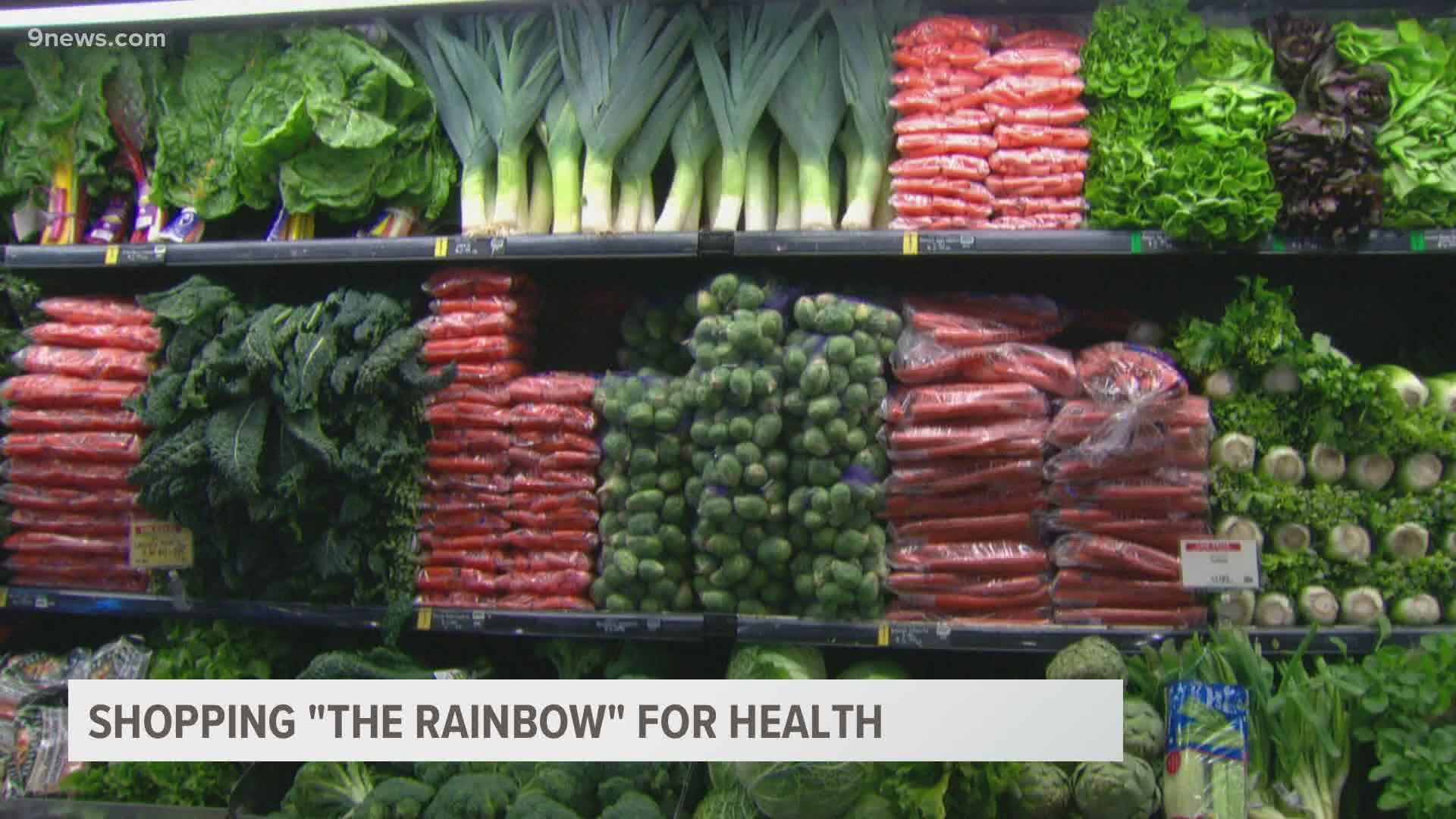DENVER — Kale is having a moment. It’s become the trending superstar of the plant world. Not everyone likes Kale though, and that’s okay. Studies show that deeply hued plants provide the greatest benefit to health and longevity.
If you don’t like Kale – don’t fret. There are dozens more options that are tasty and beneficial. The key is to get a variety of color from a variety of sources. Here are some of best!
Blue
Blue superstars in the blue group include blueberries and blackberries. A recent study showed that eating 1 cup of blueberries every day can help to improve heart health. Other studies have linked blueberry and blackberry consumption to a reduction in cognitive decline.
Purple
Eggplant, beets, figs, and purple cauliflower and carrots will get you the purple you need for better health. If you are attempting to increase your fitness level, getting more beets may help. A 2015 study found regular consumption of beet juice helped to improve endurance levels in athletes.
Red
Raspberries, tomatoes, strawberries, pomegranates and rhubarb all the top the list of red plants. One of the most popular red foods, tomatoes, has been found to help reduce your risk of skin cancer. A 2018 animal study found that regular consumption of tomatoes could reduce the risk f development of skin cancer by 50%
Black
The deeper the hue, the more benefit your health. That’s probably why black beans are one of the most nutrient dense foods you can consume. In addition to its being a literal powerhouse of antioxidants, black beans have been found to help reduce the risk for heart disease and help with weight management.
Green
There is a whole world of green beyond Kale that includes spinach, broccoli, collards, peas, and various leafy veggies. Green rules in the color world since so many studies link consumption of green leafy vegetables to a longer life, and a reduced risk of diabetes and cancer.
Orange
Hello sweet potatoes and carrots! Getting more orange in your diet can lead to better eyes. Multiple studies show that regular consumption of foods rich in beta carotene can help to reduce the risk of vision loss that may come with aging.
RELATED: For better sleep, choose better eats
SUGGESTED VIDEOS: Colorado Guide

